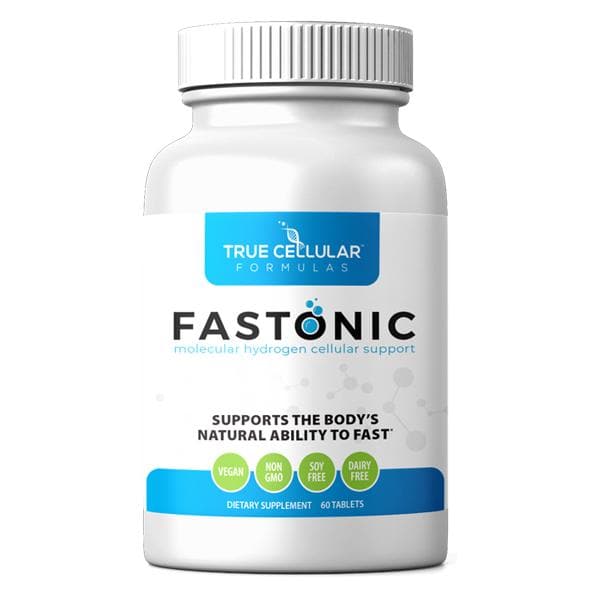As women transition through menopause, the body undergoes significant changes that can impact overall health and well-being. One of the most profound shifts involves increased inflammation and oxidative stress, which can accelerate aging and contribute to various health issues. For women over 50, maintaining cellular health and reducing inflammation becomes paramount. Fasting has gained popularity as a powerful tool to support these goals, but there’s an emerging ally that can enhance the benefits of fasting: molecular hydrogen.
In this article, we’ll explore how integrating molecular hydrogen into your fasting protocol can help reduce inflammation, support cellular health, and ease the challenges of the menopausal transition.
The Role of Fasting in Menopause
Fasting, particularly intermittent fasting, has become a popular practice for supporting weight management, improving metabolic health, and reducing inflammation. For women over 50, fasting offers several benefits that are particularly relevant during menopause:
- Hormonal Balance: Fasting can help regulate insulin levels, which is crucial as insulin resistance often increases with age and can exacerbate menopausal symptoms.[1]
- Reduction of Inflammation: Fasting promotes autophagy, a natural process where the body cleanses damaged cells and regenerates new ones. This process is essential for reducing inflammation and supporting overall cellular health.[2]
- Metabolic Support: Many women experience a slowdown in metabolism during menopause. Fasting can help boost metabolism and improve the body’s ability to burn fat, aiding in weight management.[3]
While fasting offers these significant benefits, the menopausal transition also brings challenges that may require additional support. This is where molecular hydrogen comes into play.
What is Molecular Hydrogen?
Molecular hydrogen (H2) is a small, stable molecule of two hydrogen atoms. Despite its simplicity, molecular hydrogen has powerful antioxidant and anti-inflammatory properties. When consumed, molecular hydrogen can quickly diffuse into tissues and cells, exerting protective effects against oxidative stress and inflammation.[4]
Oxidative stress is a condition where there’s an imbalance between free radicals (unstable molecules that can damage cells) and antioxidants in the body. This imbalance can lead to cellular damage, accelerate aging, and contribute to chronic diseases. During menopause, the body’s ability to manage oxidative stress diminishes, making the effects of molecular hydrogen particularly valuable.[5]
Integrating Molecular Hydrogen with Fasting
When combined with fasting, molecular hydrogen can enhance the health benefits of your fasting protocol in several ways:
- Reducing Inflammation: One of the primary benefits of molecular hydrogen is its ability to reduce inflammation. By neutralizing harmful free radicals, molecular hydrogen lowers oxidative stress levels in the body. Reducing oxidative stress helps decrease inflammation, crucial during menopause when inflammation levels rise.
- Supporting Cellular Health: Fasting stimulates autophagy, the body’s way of cleaning out damaged cells and regenerating new ones. Molecular hydrogen can enhance this process by protecting cells from oxidative damage and supporting the body’s natural repair mechanisms. This dual action helps maintain cellular health and resilience, which is essential for aging gracefully.[6]
- Improving Energy Levels: Many women over 50 experience fluctuations in energy levels during menopause. By reducing oxidative stress and supporting mitochondrial function (the energy-producing structures in cells), molecular hydrogen can help improve overall energy levels, making fasting more sustainable and less taxing on the body.
- Enhancing Cognitive Function: Menopause often brings cognitive changes, including memory lapses and brain fog. Molecular hydrogen has been shown to support brain health by reducing neuroinflammation and protecting neurons from oxidative damage. Integrating molecular hydrogen into your fasting routine can help preserve cognitive function and clarity during the menopausal transition.[7]
- Boosting Antioxidant Defenses: While fasting can stimulate the body’s antioxidant defenses, molecular hydrogen provides an additional layer of protection. It selectively targets harmful free radicals without disrupting beneficial ones, ensuring a balanced antioxidant response that supports overall health.
How to Incorporate Molecular Hydrogen into Your Fasting Routine
Integrating molecular hydrogen into your fasting protocol is simple and can be done in several ways:
- Molecular Hydrogen Tablets: These dissolve in water to create a hydrogen-rich beverage. Consuming this water during your fasting period can help maximize the benefits of fasting by reducing inflammation and supporting cellular health.
- Hydrogen Inhalation: Hydrogen inhalation devices are available for those who prefer a more direct approach. These devices allow you to breathe in molecular hydrogen, quickly and effectively delivering hydrogen directly to your cells.
- Hydrogen-Infused Water: Some products offer pre-packaged hydrogen-infused water. This can be a convenient way to incorporate molecular hydrogen into your daily routine, especially during fasting.
Introducing Fastonic: A Safe and Effective Way to Enhance Fasting with Molecular Hydrogen
 For women looking to enhance their fasting protocol with molecular hydrogen,Fastonic offers a convenient and effective solution. Fastonic is a high-quality molecular hydrogen supplement that supports the body’s natural defenses against oxidative stress and inflammation.
For women looking to enhance their fasting protocol with molecular hydrogen,Fastonic offers a convenient and effective solution. Fastonic is a high-quality molecular hydrogen supplement that supports the body’s natural defenses against oxidative stress and inflammation.
Why Choose Fastonic?
- Easy to Use: Simply dissolve a Fastonic tablet in water to create a hydrogen-rich beverage that can be consumed during fasting.
- Supports Cellular Health: Fastonic helps protect cells from oxidative damage and enhances the benefits of fasting, promoting better energy levels, cognitive function, and overall well-being.
- Reduces Inflammation: Fastonic helps reduce inflammation by lowering oxidative stress, making it an ideal supplement for women navigating the challenges of menopause.
Fastonic is a safe and natural way to complement your fasting routine. It ensures you reap the full benefits of fasting while supporting your body’s health during menopause. If you’re ready to take your fasting protocol to the next level, consider integrating Fastonic into your routine.
NOTICE: These statements have not been evaluated by the Food and Drug Administration. This product is not intended to diagnose, treat, cure or prevent any disease.
Conclusion
The combination of fasting and molecular hydrogen offers a powerful strategy for women over 50 looking to manage the effects of menopause while supporting overall health. By reducing inflammation, protecting cellular health, and boosting energy levels, molecular hydrogen can enhance the benefits of fasting and help women navigate the menopausal transition more smoothly.
Fastonic provides an easy and effective way to incorporate molecular hydrogen into your fasting routine, ensuring you get the most out of your fasting efforts. As you explore ways to support your health during this important stage of life, consider the benefits of combining fasting with molecular hydrogen for a more balanced, resilient, and vibrant you.
References:
- Cienfuegos, Sofia, et al. “Effect of Intermittent Fasting on Reproductive Hormone Levels in Females and Males: A Review of Human Trials.” Nutrients, vol. 14, no. 11, June 2022, p. 2343. PubMed Central.
- Shabkhizan, Roya, et al. “The Beneficial and Adverse Effects of Autophagic Response to Caloric Restriction and Fasting.” Advances in Nutrition, vol. 14, no. 5, July 2023, pp. 1211–25. PubMed Central.
- Vasim, Izzah, et al. “Intermittent Fasting and Metabolic Health.” Nutrients, vol. 14, no. 3, Jan. 2022, p. 631. PubMed Central.
- Ge, Li, et al. “Molecular Hydrogen: A Preventive and Therapeutic Medical Gas for Various Diseases.” Oncotarget, vol. 8, no. 60, Sept. 2017, pp. 102653–73. PubMed Central.
- Pham-Huy, Lien Ai, et al. “Free Radicals, Antioxidants in Disease and Health.” International Journal of Biomedical Science : IJBS, vol. 4, no. 2, June 2008, pp. 89–96. PubMed Central.
- Artamonov, Mikhail Yu., et al. “Molecular Hydrogen: From Molecular Effects to Stem Cells Management and Tissue Regeneration.” Antioxidants, vol. 12, no. 3, Mar. 2023, p. 636. PubMed Central.
- Henderson, Victor W. “Cognitive Changes After Menopause: Influence of Estrogen.” Clinical Obstetrics and Gynecology, vol. 51, no. 3, Sept. 2008, pp. 618–26. PubMed Central.


